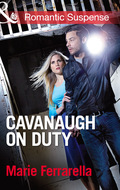Kitap dosya olarak indirilemez ancak uygulamamız üzerinden veya online olarak web sitemizden okunabilir.
Kitabı oku: «Detective Defender»
“Someone knows, Martine. And they’re coming after us.”
Martine Broussard has never forgotten the terrible night years ago that drove her and her best friends apart. Now a vengeful someone is brutally killing each woman involved. Martine has one chance at survival—and that’s the one person she distrusts most! And the passion flaring between them is anything but safe...
Rule-breaking New Orleans detective Jimmy DiBiase wastes no time putting Martine under his 24/7 personal protection. His bad-boy ways caused them to fall out years ago; now all he wants is to guard her and end this nightmare. With every lead they follow, every secret they can’t hide sparks a hunger neither can resist—even as a killer’s vicious end game turns desire into a devastating trap.
“You’re always welcome in my bed, Martine. I made that clear a long time ago.”
“What are you committed to, Jimmy?” Martine’s voice was barely a whisper, and the sound was shaky, like her legs that didn’t want to support her, like her fingers that trembled when they cupped his hand where it rested on her cheek.
Jimmy moved closer, kissed a trail to her ear, then glided down to the corner of her lips. He toyed with her, teasing her lips apart, briefly tasting her, giving her a taste of him, before he lifted his head and met her gaze. His was fiercely protective and possessive and hot.
“You, Tine,” he answered gruffly. “I’m committed to you...”
Dear Reader,
The heroine in this book, Martine Broussard, first appeared in my 1999 release, Murphy’s Law. Best friend of that book’s heroine and owner of a voodoo shop that catered to both tourists and serious practitioners, Martine captured a few hearts besides my own. Dedicated readers periodically asked for her story over the years, and I wanted to give it to them. I just didn’t have a hero for her.
Then, after more than fifteen years of waiting, in walked Jimmy DiBiase. Martine knew Jimmy from a very short-lived and unhappily ended relationship years ago, and she didn’t remember him the least bit fondly. But underneath all that hostility—okay, yes, there was more hostility, along with aggravation and annoyance and irritation. But underneath that, Martine’s little heart squeed just about every time Jimmy came around.
That was when I knew Martine and I both had our guy. Add a few murders, a little voodoo, secrets and threats from the past—and, of course, some of New Orleans’s incredible food—and, as they say down there, Laissez les bons temps rouler! Let the good times roll.
Marilyn
Detective Defender
Marilyn Pappano

Oklahoma, dogs, beaches, books, family and friends: these are a few of MARILYN PAPPANO’s favorite things. She lives in imaginary worlds where she reigns supreme (at least, she does when the characters cooperate) and no matter how wrong things go, she can always set them right. It’s her husband’s job to keep her grounded in the real world, which makes him her very favorite thing.
MILLS & BOON
Before you start reading, why not sign up?
Thank you for downloading this Mills & Boon book. If you want to hear about exclusive discounts, special offers and competitions, sign up to our email newsletter today!
Or simply visit
Mills & Boon emails are completely free to receive and you can unsubscribe at any time via the link in any email we send you.
For the people who have loved New Orleans with me:
Dale
Meg
Susan
And for the special cops in my life:
Brandon and Robert
I love you all!
Contents
Cover
Back Cover Text
Introduction
Dear Reader
Title Page
About the Author
Dedication
Chapter 1
Chapter 2
Chapter 3
Chapter 4
Chapter 5
Chapter 6
Chapter 7
Chapter 8
Chapter 9
Chapter 10
Extract
Copyright
Chapter 1
It was a strange winter. The sky hung heavy and gray, the clouds so dense that the sun hadn’t managed to break through in days. Damp cold drifted through the French Quarter streets, spreading its chill with each bit of ground it covered. Martine Broussard had lived her entire life in southern Louisiana, and she couldn’t recall any winter that been so relentlessly bleak for so shamelessly long.
Tugging her jacket tighter, she regretted not taking a few moments to run up the stairs from her shop to get a heavier coat before striking out for the river, but Paulina had been so insistent on the phone. You have to come now. I really have to talk to you, Tine.
When a ghost from your past broke twenty-four years of silence with both fear and anger in her voice, what could you do besides go now?
No one sat on the benches in Jackson Square or lounged on the grass, a rare emptiness that was as strange as the chill. The walkways along the four sides saw a bit more traffic, but people seemed eager to go from one place to another. Like them, Martine didn’t linger but lengthened her stride instead. It was only a handful of blocks from her shop on Royal Street, and the walk to the river normally took ten minutes or so as she strolled and dawdled and exchanged hellos with fellow Quarter residents. This afternoon she cut the travel time in half, jogging across Decatur, crossing the trolley tracks, reaching the Moonwalk in record time. It was even colder here by the river, but that wasn’t what caused the prickling of her nerves.
It was the sudden absolute sense of...wrong. This weather was wrong. The phone call from Paulina was wrong. The panic in her voice was wrong. The queasiness in Martine’s gut was wrong. It was a normal Tuesday in a normal week in a normal January in a normal French Quarter, and the uneasiness, the nervousness, the weirdness, were all wrong.
But it wasn’t a normal day, a normal week, a normal month.
The broad path stretching in both directions atop the riverside levee was empty. There were trees, benches and trash cans, all shrouded in swirling fog, but not a sign of life in either direction. Martine reached inside her jacket, touched her fingers lightly to the charm that lay beneath her shirt, then gripped it as a figure materialized a dozen feet ahead of her. A gasp escaped her before she recognized Paulina, but even recognition didn’t slow the pounding of her heart.
“Never thought I could hide behind a little tree, did you?” her old friend commented. Though she still looked very much like the girl Martine had grown up with, she was significantly different, too. Teenage Paulina had always carried an extra ten pounds that gave a soft roundedness to her beauty; she’d rarely been without a smile; her blond hair had gleamed and her blue eyes had glistened with life, love, anticipation and promise.
This woman needed an extra ten pounds to fill out the hollows in her face. Her hair hung dull and limp, and her eyes were hollow, too. She wore black pants that bagged on her skinny frame, a dingy white shirt and a gray fleece jacket that helped her blend into the steely day.
She would have been voted “the girl most likely to...” if their generation had done such things. Most likely to sleep with the boys. To talk back to the teachers. To flirt with the handsome football coach. To get suspended for being a wild child and named homecoming queen in the same year. To go to college, to live life loud, to run wild and travel far, to have the perfect career, marry the perfect man, birth perfect children.
Like the day, the weather and everything else, that title would have turned out to be wrong.
Realizing she was still clenching her charm, Martine let it drop and slowly closed the distance between them. “It’s been a long time, Paulina.”
“Not long enough. I’d hoped I’d never see you again.”
Though the baldly spoken sentiment stung, Martine couldn’t take offense because subconsciously she’d reached the same conclusion long ago. For fifteen years they’d been best friends—the two of them plus Callie and Tallie, the Winchester twins, and Robin Railey—but one June night had ended that. Robin had refused anything to do with them starting the next day. The twins had moved their summer visit to relatives in England ahead by a month and left without a goodbye, and Paulina had escaped to college two months early. As far as she knew, none of them had ever returned home.
“Why don’t we get out of the cold? Get some coffee?” Martine gestured vaguely to her left, her wave taking in Jax Brewery and Café du Monde.
Paulina shook her head and went straight to the point. “Someone knows.”
Without thought, Martine reached for the charm again, caught herself and forced her hand away. A chill swept through her, unsettling and eerie and totally irrational. She knew that last part in her brain—had tried to convince her friends of it twenty-four years ago but never could. She gave herself a mental shake and Paulina a faint smile. “Knows what, Paulina? That five girls who’d had too much weed played some silly games in the woods one night?”
Paulina’s features looked as if they would crack if she tried to return the smile. They were masklike, the coloring off, the contours exaggerated, the eyes shallow and empty of any emotion that might come down on the lighter side. A not-real mask of how a real Paulina might look if she were scared to death.
Scared to death? Because of something they’d done when they were kids?
“They know what we did, Tine. I don’t know how—maybe they saw us, maybe Callie or Tallie or Robin told someone—but they know, and they’re...they’re...” Her gaze swept the area, her eyes wide. She hunched her shoulders and lowered her voice. “They’re coming after us.”
Martine shuddered, reminded of too many late girls’ nights watching horror movies on TV or wandering the entire town after everyone else was in bed, snitching tomatoes from Mrs. Bush’s plants, peaches from Mr. Everard’s trees, sharing plans and jokes and stories to scare the pants off each other. Paulina had always been best at those, holding a flashlight so her face was mostly shadows, creating voices for every character, including low, growly, vicious ones for the villains. She’d never failed to make Martine shriek with good-natured fear, followed by laughter.
But a look at Paulina showed the great release of laughter wasn’t on the agenda today.
Again, Martine gestured toward the more populated area a few dozen yards away. “Come with me, Paulina. I’ll buy you a cup of coffee and some beignets. You always said they were God’s dessert, and they’re as good today as they were then.” She even took a few steps before realizing that Paulina hadn’t moved.
“Have you talked to Callie or Tallie or Robin?” the woman asked. “Heard anything about them from your family or on Facebook?”
Retracing her steps, Martine returned to her original spot. “No.” The end of their friendships had come too fast, had been too hard. She’d moped around alone and lonely after they’d abandoned her, until finally she fled, too, though not far: only the fifty miles to New Orleans. She’d put them out of her head and eventually out of her heart, and she’d made new friends and built a new life with no room for them. The day she’d realized she could think of them dispassionately—Oh, that blonde looks like Paulina or She reminds me of Robin with the way she walks—had been a very long time coming.
“Well, you can’t talk to Callie. She’s dead. They tried to kill Tallie, but she got away. No one knows where she is. I haven’t been able to find Robin, so I don’t know if she’s still alive. And that leaves you and me, Tine. Me, I don’t stay in one place very long. You, though...you’re living over there on Royal Street. Hell, you’re even listed in the phone book. You need to leave. Run. Find a dark little hole and pull it in on top of you, because they’re coming after us, and they’re not going to stop until we’re—we’re...”
She said the last word in one of those scary-story voices, little more than a whisper but still loud enough to echo inside Martine’s head: “Dead.”
A passing ship chose that moment to blast its horn, both muffled and amplified by the heavy air. Martine gazed at it a moment, headed downriver. Once it reached the Gulf of Mexico, its crew could go anyplace they wanted in the world. A tiny part of her wished herself on the deck, where soon the sun would shine and all of life’s possibilities would open up before her again.
But she couldn’t run away, wouldn’t, especially from a problem that wasn’t even really a problem. Those foolish kids from twenty-four years ago hadn’t done anything deserving of punishment. Besides, she had a business here, a home and the best friends a woman could be blessed with. Who gave up perfect to run from unfounded fears?
Apparently Paulina. When Martine turned away from the ship and back to her friend, Paulina was quickly disappearing into the mist ahead. “Paulina, wait!” Boots with three-inch heels weren’t made for running, especially when the ground was damp, but she got close enough to snag the trailing hood of Paulina’s jacket. “Paulina, please, let’s talk about this. I’ll get you a place to stay. You can get a good night’s rest, tonight I’ll cook your grandmother’s gumbo, and in the morning we’ll have beignets and coffee and straighten all this out.”
Paulina’s gaze took on a scornful cast as she spun around to face Martine. “You don’t believe me, do you? You, with all your voodoo and charms and black-magic curses—you think I’m crazy. I knew Tallie would doubt me. She and Callie never had half a brain between them. And Robin...she always thought I didn’t have half a brain, either. But you—you make your living off this stuff, you’re surrounded by it all the time, and you think I’m crazy.”
“I don’t, Paulina, I don’t think you’re crazy at all. I just want—I want to understand it. I want to know what’s happened. I want to wrap my head around it. We can do that together and maybe even find Robin. Just come back to the shop with me. Come on, we’ll talk it all out and—and find some way to make things right, okay? We always made things right, didn’t we?”
Stiffening, Paulina gave her a haughty stare. “You think I don’t remember your lying-your-ass-off voice? So innocent and sincere that every adult you used it on believed every word you said?”
Heat flushed Martine’s face. She hadn’t realized when she slipped into the voice, but she’d recognized it by the end of her little speech. Her best friend Evie called it her dealing-with-psychos voice. A popular French Quarter psychic, Evie had her own version, the tourists-wanting-their-money’s-worth voice.
“I’m sorry, I’m sorry. I didn’t mean—” A screech rushed up from the fog that hid their feet, making them both jump. An instant later, an angry little dove flew up into view, hovered for a moment to chitter at them—they must have interrupted his dining on whatever scraps he’d found below—then darted off.
At the same moment, Paulina darted off, too. She moved fast and silent, either sure of her footing or not caring if she took a wrong step. Martine watched her go, tugged her coat even tighter and headed back to the shop.
* * *
Jimmy DiBiase didn’t have the typical wanderlust. He had no desire to travel to every state in the union. He didn’t like flying enough to want to spend hours in the air to tour Britain, France, Italy or Greece. He didn’t care about China or India or Vietnam or any of hundreds of foreign places he’d never been. He’d been born and raised within spitting distance of the Mississippi River, and he was happy to stay within that same narrow range.
But he did like moving.
When he woke up, he knew automatically that it was Wednesday, and without looking at a clock, he knew it was too early for him to be awake, for which he could thank the person calling his cell. He knew it looked like another grim, dreary day, and he needed to take a leak, but he didn’t know where the bathroom was because, not for the first time in his life—or even this year—he didn’t know where he was.
First things first. He picked up the cell, setting it on the table next to the mattress. The mattress and the box spring were the only other furniture in the room, and the tile seemed to radiate out from them in dark shiny waves. Shoving his hair from his face, he answered the call as he sank back under the covers. “What time is it?”
“Five fifteen.” The voice belonged to Jack Murphy, the homicide detective he worked with most often, and he sounded as unready to roll out of bed as Jimmy. Understandable when he had a beautiful wife curled up next to him. “Spare me the complaints, James. We got a case.”
“How’d we get a case when our shift doesn’t start for nearly two hours?” Jimmy sat up and swung his feet to the floor, then saw the wall of windows on the other side of the room. This was his new apartment. He’d seen it only once before and never in the dark, but there was no mistaking all that glass eight stories above the ground.
“Personal connection,” Murphy said. “I’ll pick you up in five.”
“I’m at the new place.”
“I’ll be out front.”
The call ended, and Jimmy thought for about ten seconds about stretching out again, but there was nothing in the world he loved as much as his job—not even sleep when his head was thick and his ass was dragging. Add in Murphy’s personal connection to a homicide case, and he moved fast enough that he was standing on the sidewalk when Murphy pulled to the curb.
Jimmy slid into the passenger seat, angling the computer away to give himself some space. He fastened his seat belt and reached for the travel mug of steaming coffee in the holder nearest his seat. A carefully wrapped muffin sat on top of the cup—carrot and walnut, by the smell of it. Evie Murphy was a princess among wives. Murphy was damned lucky to have her.
Jimmy’s behavior in his one and only marriage had proved he didn’t deserve any kind of wife. The way he’d treated Alia must have seriously pissed off the gods; judging by the sorry state of his relationships since then, it seemed they were done with him.
With his dark hair standing on end and his tie looped around his neck instead of tied, Murphy was stoic and silent, not yet awake. He drove through the freaky, patchy fog, following empty streets past houses where outdoor lights cast dim halos. It wasn’t raining, but everything was wet, and the dampness helped the cold penetrate deeper into a person’s bones. Jimmy hadn’t even begun to warm up until his muffin was gone, he’d downed half his coffee, and a swirl of ghostly blue and red emergency lights ahead announced their destination.
“A cemetery?” He glanced at Murphy. “You volunteered me for a case in the middle of the night at a cemetery that looks like a set for Halloween 47: Everyone Dies?” Then he realized he hadn’t shown the courtesy of asking about the connection. “Do you know the victim? Does Evie?”
“No.”
“Favor to family?”
“No.”
“A former employee? A neighbor? Parents of one of your kids’ friends?”
Murphy parked near the other vehicles and shut off the engine. He pulled on gloves before picking up his own coffee. “The only thing the victim had on her was a prepaid cell phone that had made only one call—to Charms, Notions and Potions.”
Jimmy blinked. He was familiar with the business name. He’d worked half his life in the French Quarter and spent the other half partying, celebrating, crashing or living there. The cutesy name belonged to a shop owned by Martine Broussard, Evie’s best friend, where up front she sold tourist stuff: good luck charms, candles, voodoo ritual kits, how-to books and worry dolls, along with the usual New Orleans T-shirts, coffee mugs and mass-produced voodoo dolls. In the back room she offered the serious practitioner stuff. Her market for that was mostly local. Tourists rarely ventured through the door separating the two rooms.
Family friendship aside, Jimmy wasn’t sure he would have dragged himself out before dawn to Halloween 47 just because the murder victim had called Martine’s voodoo shop. Maybe she’d wanted directions. Maybe she’d been looking for a love potion or an Obatala candle for self-purification, or maybe she’d wanted to know if the bar across the street whose name she couldn’t remember was open yet.
Not that it mattered. Murphy had wanted the case, and they had it. Now it was time to get out of the car, wander into the cemetery and start working it.
The cars belonging to the officers assigned the initial call and those of the crime scene technicians were parked along the street. Bright lights had been set up some fifty yards away among the graves, and a canopy had been erected to protect the body from the elements. As Jimmy buttoned his overcoat, he noticed it was starting to rain, just small half-hearted drops, as if the fog had worn itself out and was liquefying in the sky.
He’d spent a lot of time in cemeteries—investigated a few murders that took place there, attended plenty of victims’ funerals to see who else showed up and even gone to a few funerals for friends or distant relatives. Cemeteries didn’t normally creep him out, but there was something about this scene...the weird weather, the unusual hush of the voices, the edginess that kept everyone focused on their duties. He wasn’t the only one who’d rather be home in bed.
Yellow-and-black crime scene tape draped limply from crypt to crypt, cordoning off the area where the body lay. Uniformed cops stood outside the perimeter, detectives and crime scene investigators inside. Between them, he caught a glimpse of legs, ankles showing between sodden pants hiked to the calves and canvas sneakers, the skin unusually colorless under the bright lights.
“Detectives.” A grim-faced patrolman lifted the tape so they could duck under, keeping his back to the scene. He looked so young that this was likely his first body, and he was doing his best to avoid it.
It was far from Jimmy’s first, and probably just as far from his last.
“What do we know?” he asked, shoving his hands into his coat pockets.
It was a uniform who answered. “Neighbor out with his dog saw suspicious activity by the angel.” He gestured behind him with one hand. “Myself and my partner didn’t see anything from the street, but when we walked over here, we found...” He gave the body a quick nod that prevented any details from registering.
Everyone under the canopy mimicked his look at the victim, then turned to the angel. It adorned a spire atop the crypt twenty feet away, its gray marble turned dingy by time and weather. Her face was tilted to the sky, her wings stretched out. In prayer? Pleading? The promise of protection?
Had the victim seen the angel? Had she had a chance to pray? Or had she already been dead when she was brought here?
“She has no ID,” Leland, the senior of the crime scene guys, said. He and Jimmy had started with the department at the same time, Jimmy an ambitious patrol officer, looking for arrests, wanting to make a meteoric rise through the ranks, and Leland a lab rat, perfectly content with handling corpses. The dead were so much less annoying than the living, he’d insisted. He’d risen through the ranks, too, to the point that he often had to deal with the living, as well. “No driver’s license, no credit card, no jewelry, nothing. Just two hundred bucks cash in her jacket pocket and the cell phone with its one call.”
“So it wasn’t a robbery.”
Jimmy didn’t notice who’d stated the obvious—not him, not Murphy. He studied the woman instead: wet hair of dirty blond or light brown. Thin face, sunken cheeks, deep shadows under her eyes. Lines at the corners of her mouth and eyes, signs of worry or general unhappiness. Her T-shirt clung to her in wet folds, once white but now a vague shade of gray. She’d lost weight recently, judging from the long loop of drawstring that held her pants around her skinny hips and from the way her skin sat uncomfortably on her frame. Her clothes were cheap, maybe secondhand, but something about her didn’t strike him as a secondhand-clothes person. There was a line on her left index finger where she’d long worn a ring, not a tan but a bit of shiny skin where the ring had rubbed back and forth, and all ten of her nails were bitten to the quick.
What there wasn’t was an obvious cause of death. She didn’t look like she was just sleeping, though Jimmy had seen his share of dead people who did. No, it was apparent with the quickest of glances that this woman was dead. The lights were out; the soul wasn’t home.
Which meant the cause was on her back side. “Can you roll her over?” he asked, and the crime scene guys moved to comply. Something dark stained the back of her head. Blood, possibly from a blunt object, possibly the entry wound of a small-caliber bullet.
“There’s something under her shirt,” Leland said, and they returned her to her original position. He pulled up her T-shirt to reveal a large bandage, sticky clear film protecting some type of dressing. It was centered over her chest, crossing her breasts, extending above and below several inches.
“So she has surgery, someone kills her and dumps her in the cemetery?” It was the same voice that had stated the obvious earlier. This time Jimmy looked and identified its owner as one of the crime scene guys who’d so far managed to stay on the perimeter, not doing much of anything. Maybe one of their lab rats who’d thought working out in the field would be fun, or maybe a new guy who was destined to get on Jimmy’s last nerve pretty quickly.
Ignoring his coworker, Leland began peeling back the edge of the dressing. He worked it loose carefully, teasing the adhesive from the skin, as gentle as if his patient were alive and watching, then abruptly he stopped. He looked a moment, then folded back the flap of bandage as his distraught gaze met Jimmy’s. “I think we’ve found the cause of death.”
Jimmy and Murphy both leaned forward, concentrating on the small area of chest that had been revealed—not pale smooth skin but a wickedly ugly wound and, inside, emptiness. Not real emptiness, of course, but the essence of something missing. Something important.
“Damn.” Jimmy breathed the word the same time Murphy did, then looked to Leland for confirmation. Leland nodded.
“The killer removed her heart.”
* * *
After a restless night, Martine gave up any hope for peaceful sleep, pulled her robe on and shuffled to the kitchen to make a cup of coffee. She’d had dreams all night—ugly, unsettling ones involving deep shadows, woods, birds screeching that had raised the hairs on her arms. If she were fanciful, she’d say the fog was keeping the happy dreams at bay. It didn’t want her nights to be any more cheerful than her days had become since it moved in.
“It’s just fog,” she groused, pouring cream and sugar into her coffee. “A cloud of tiny water droplets hovering above the earth. It doesn’t think or care or even know you exist, Tine.”
The old, almost forgotten nickname made her pause before taking the first sip of coffee. Where was Paulina this morning? Had she checked into a motel or crawled into a hole and pulled it in after her? Had she stayed safe last night? Had she gotten anything hot to eat?
Was she crazy?
Martine had tried to put all the memories behind her when she got back to the shop yesterday, a task made easier by an influx of tourists. They’d worn a variety of N’Awlins T-shirts, a few had sported Mardi Gras beads or feather boas around their necks, and they’d done their best to project the carefree, good-time-in-the-Big-Easy air that most tourists came by naturally, but it had been a struggle for this group. Even inside the brightly lit shop, they’d huddled together in small numbers, their voices muted, lamenting the lack of sunshine and the mild weather they’d expected. They’d been worried without knowing why, and they had cleaned the shelves of every single good luck charm and candle in sight before leaving the way they’d come.
After the shop was closed, after Martine had finished off a po’boy from down the street and locked herself inside her cozy apartment, the memories had come knocking again. A search of the internet had proved true one of Paulina’s claims: Callie Winchester had died three months ago in Seattle. The details reported by the news outlets were scarce, but the obituary confirmed it was their Callie. Her parents, who’d once lived two blocks from Martine’s family, were now in Florida, and her twin, Tallie, made her home in London.
Callie...dead. Though Martine hadn’t seen her in twenty-four years, though she hadn’t thought about her much in twenty of those years, it hurt her heart to know she was dead. Callie had always been so vibrant, full of humor and wild ideas that usually ended in trouble for all of them. She’d been beautiful, with sleek black hair that reached down her back, olive skin and gray eyes, and she’d done a perfect imitation of her posh mother’s British accent, but there had been nothing refined or elegant about her huge booming laugh. Tallie, identical in every way except the laugh, had compared it to a braying jackass, which merely made Callie laugh even harder.
And now she was gone. Someone had stolen her very life and discarded her for someone else to deal with, as if she were no more important than an empty burger wrapper.
Ücretsiz ön izlemeyi tamamladınız.








